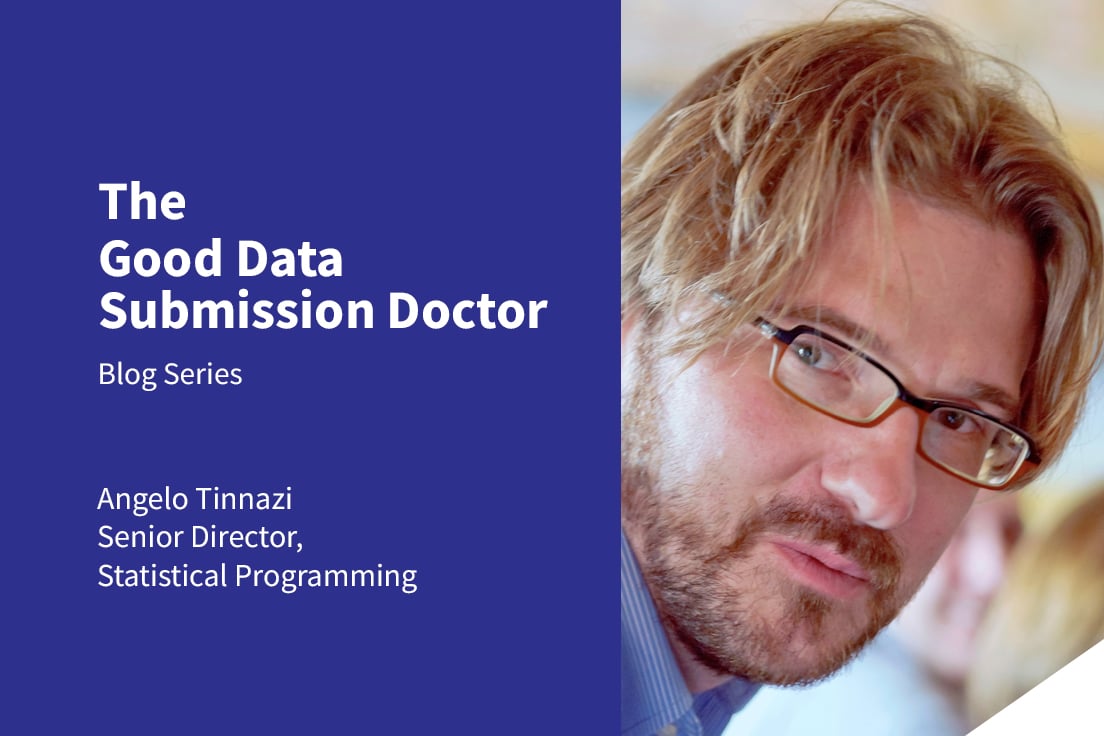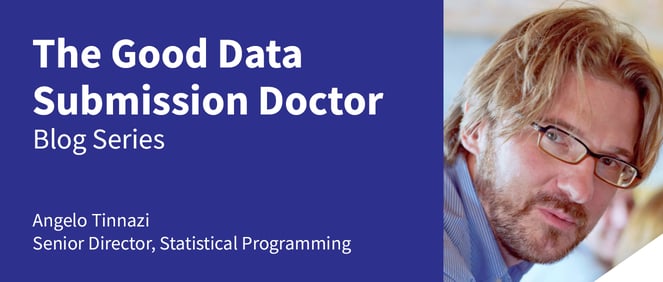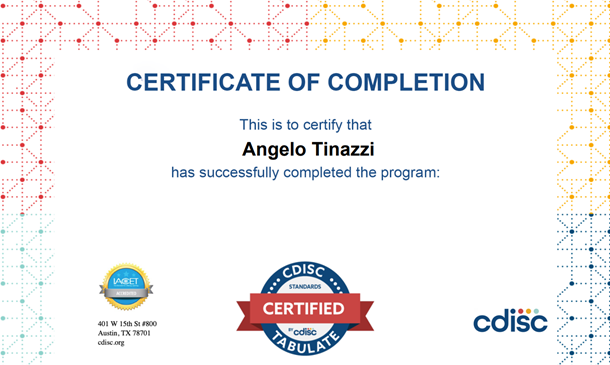CDISC Certification - is it worth taking?


For years, I have been telling the recruiters at Cytel to be wary of candidates claiming to have a CDISC Certification
“There is no official CDISC certification. The candidate would have probably attended a CDISC Training.”
Last year, CDISC launched a new CDISC Pilot Certification program and in April this year I was offered to be a part of the pilot; the certification will be made available to everyone this August (join the CDISC webinar on September 7, 2021 to know more).
As of today, only the SDTM certification is available (“CDISC Tabulate Certification”) but there is a plan to develop more certification programs on other CDISC standards.
I took the certification test in April through the Prometric platform, and it was an interesting experience!
Due to the pandemic restrictions, I took the test remotely from my home and that was somehow funny because I was assigned a Prometric supervisor who was virtually with me for the entire three hours of the test (although, you can take up to 4.5 hours to complete the test). During the test, I had to keep my camera on as the supervisor needed to make sure I was alone in the room and I was also not allowed to have anything other than my computer on my desk (no books, no paper, etc.). I have the habit of thinking aloud when I am reasoning and that did not work so well in this exam. The slightest suspicion of you trying to seek outside help can lead the supervisor to abort your session.
The test is relatively easy if you have a good knowledge of the Standard (CDISC recommends at least three years of experience with CDISC standards prior to taking the certification). I would say, for about ten questions out of two hundred, I have some doubts about the answers I gave.
These two-hundred test questions are split into eight categories:
- General Concepts, Terms and Assumptions, and Conformant Dataset Structure
- General Observation Classes
- Domain-Specific Knowledge
- Findings About, Custom Domains, Associated Persons, and Study References
- Special Purpose Domains
- Controlled Terminology
- The Trial Design Model
- Relationships Among Datasets and Record
The test does not cover any specific version of the standard, but I can tell you there were some questions on the new items introduced in SDTM IG 3.3. See more details in the “Exam Scope” section of the CDISC Certification webpage.
What annoyed me was the time it took to know the outcome which was about 2 months.
Below is a screenshot of my certificate. Of note, the score was not revealed by CDISC.

The certification cost is $500 and it has to be renewed every three years. I think it is a bit expensive especially if individuals are paying for it.
Coming back to the objective of this article, “is it worth getting a CDISC certification?” The CDISC Certification program possibly holds some value but for me, in general, I do not give much weightage to certifications as in my experience, despite holding certifications such as SAS, many candidates still fail to think when they are challenged.
Our Industry (especially in Biometrics) and the organizations where I have worked, do not care much about certifications, and this probably will not change with the CDISC certification. I have also never seen job posts requiring for example SAS certification for Statistical Programmers.
However, I found the CDISC certification to be an effective way of challenging my knowledge and I believe it can be used by companies to screen candidates as it shows whether they have at least the basic knowledge in CDISC Standards. It can also be useful for candidates to get familiar with some theoretical questions that can come up in job interviews.
In conclusion, “Ai posteri l’ardua sentenza”!!! (“posterity will judge” cfr. “Il Cinque Maggio” Alessandro Manzoni, about Napoleon Bonaparte “glory”)
About Angelo Tinazzi
 Angelo Tinazzi is Senior Director, Statistical Programming, Clinical Data Standards and Clinical Data Submission at Cytel. He is a well- published and recognized expert in statistical programming with over 20 years' experience in clinical research. The application of CDISC standards in different therapeutic areas is part of his core expertise since 2003 in particular in the context of data submission to health authorities such as the FDA and PMDA.
Angelo Tinazzi is Senior Director, Statistical Programming, Clinical Data Standards and Clinical Data Submission at Cytel. He is a well- published and recognized expert in statistical programming with over 20 years' experience in clinical research. The application of CDISC standards in different therapeutic areas is part of his core expertise since 2003 in particular in the context of data submission to health authorities such as the FDA and PMDA.
Angelo is an authorized CDISC instructor and member of the CDISC ADaM Team as well as the CDISC European Committee where he also manages the Italian-speaking CDISC User Network.

